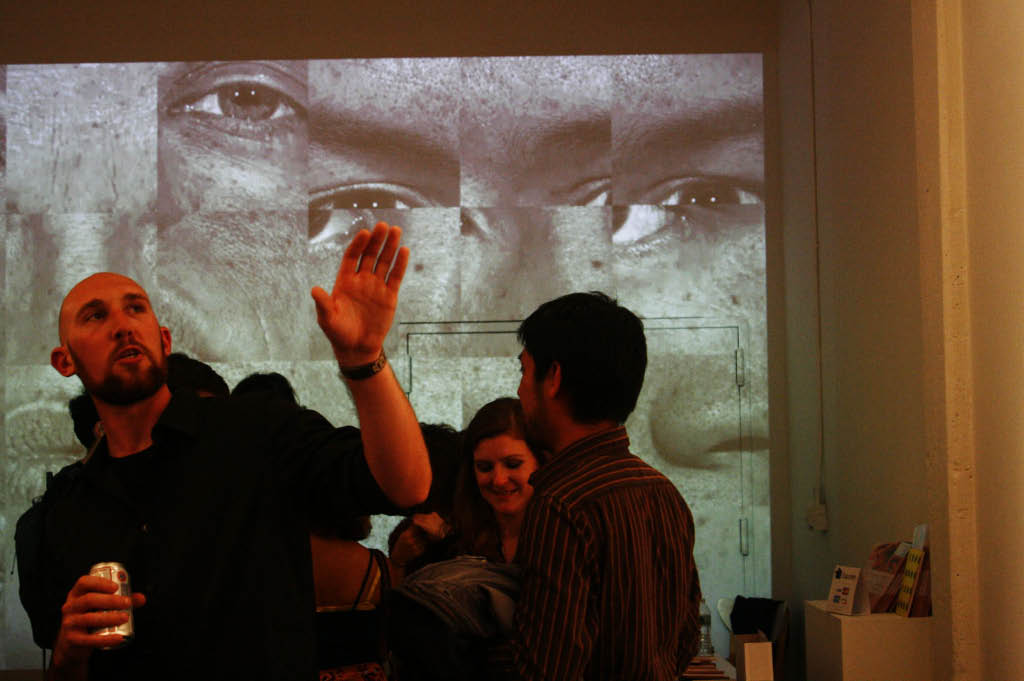
Screenshots of the 311 app on BlackBerry, featuring the welcome and problem screens. Click to enlarge.
By the summer’s end, Philadelphia 311 will take another big step forward, City Managing Director Rich Negrin announced at the Philly Tech Week Signature Event.
“In the next three months, we’ll see the release of our first 311 [web] app” Negrin told 150 attendees at WHYY, many tweeting the news to a projected Twitterfall, in highlighting what’s new for the non-emergency call center.
The web application represents another, more passive front face to 311, supporting call intake volume — due to surpass three million calls received, Negrin added — and the walk-up service at City Hall.
“It’s not just your granddaddy’s app,” said Rosetta Lue, the director of the non-emergency call center. “You can enter requests, track complaints and have a community calendar with what’s happening. You don’t have to wait for our call center to be open.”

Screenshots of the 311 app on BlackBerry, featuring the login and location screens. Click to enlarge.
The pilot version, optimized to run on a BlackBerry Torch and completed by the city’s Division of Technology, is being released June 10 to City of Philadelphia staff working in Philly Rising communities [see sidebar story below], says Jennifer Brennan, the DOT project manager overseeing the build.
How Philadelphia Police will pilot the 311 app:
Before the long-awaited 311 app gets into your hands, the tool will be piloted by City of Philadelphia employees working in the PhillyRising neighborhoods, a city program to pool and focus city resources in troubled neighborhoods.
That includes police officers, says Managing Director Rich Negrin, an exciting development.
“I’m not aware of anyone else [in the country] doing it that way, [to use a mobile tool] to really integrate the police when the’yre not making arrests and doing their day job,” Negrin told Technically Philly. “They’re submitting tickets to 311 to do things like clean up graffiti and improve the quality of life in these neighborhoods. You can do things like track what police officers care about their communities.”
Though other city employees will be able to use the app, police will now more readily have information in their patrol cars to track the complaints and history of, say, an abandoned house, Negrin adds.
“I think it’s the answer to the ‘No Snitch’ culture,” Negrin said. “This is a community engagement program that is really a new way to deliver services in neighborhoods with problems.”
Future iterations, likely by summer’s end, will feature an iPhone version, with work from LiquidHub, Negrin said. [Updated: CTO Tommy Jones says that while LiquidHub is a partner on many DOT projects, the 311 app was not one of them.] If all this sounds familiar, it’s because it should. It was April 2010 when the iPhone version was first pledged by then Chief Technology Officer Allan Frank. Then that July, the deadlines were stripped away.
“Now, it’s really ready” said Negrin, who oversees DOT, 311 and other good government initiatives in his role as Mayor Nutter’s number two.
“Social media and mobile platforms and engagement and chat and text messages: those ways are where 311 centers across the country are seeing growth,” Lue said. “Service expectations don’t go down. You need to be able to respond.”
Smart phones are accessed in lower income communities, Lue said, suggesting this is another way to connect with underserved neighborhoods.
It’s an exciting endeavor, though following the release of OpenDataPhilly.org, a clutch of developers have made the resounding cry that government should release data, APIs and the like and let the technology community build and upkeep the tools that use them. Lue has made clear that she’s ready to embrace support from the community to continue to improve 311.
“We’re interested in timely and accurate information and data so departments can make changes with accurate information,” said Lue, the 311 director. “We have very motivation and interest in sharing that data with the public when possible. Any support to make that happen is welcome.”

Before you go...
Please consider supporting Technical.ly to keep our independent journalism strong. Unlike most business-focused media outlets, we don’t have a paywall. Instead, we count on your personal and organizational support.
Join our growing Slack community
Join 5,000 tech professionals and entrepreneurs in our community Slack today!

Entrepreneurship is changing, and so is the economic development behind it

Tech Hubs’ new $210M funding leaves Baltimore and Philly off the table

Here’s what to know before using AI to craft your brand’s social media posts



